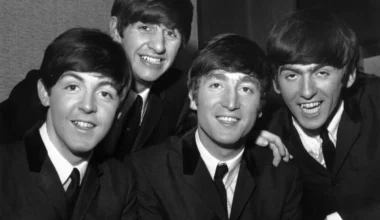The music business appeared very differently in the 1970s. Many other bands came to prominence after rock music began to dominate the mainstream in the previous decade. Bands like The Beatles and The Rolling Stones, who achieved enormous popularity, catalyzed this shift. These bands would forever alter the path of music history. Because of the fertile ground, genres that are now difficult to imagine a world without—like punk and metal—were starting to emerge.
With fewer bands, musicians were able to build substantial fan bases. They did this through radio play, appearances on television music shows, and live performances. Additionally, they utilized magazine articles and word-of-mouth marketing effectively. The only way to enjoy specific songs anytime, from the comfort of your home, was to visit a record shop. You had to buy a physical copy of an album or a single.
But the landscape looks very different these days. Part of the internet age’s legacy is an overabundance of artists competing for attention and success. Free music-making software is readily available for download on computers. Grimes created her critically acclaimed album Visions entirely with GarageBand, one of many well-known songs and albums. Of course, actual skill is needed, but even so, using software to create your music without the need for producers or studio visits is quite simple.
It’s hard to spend enough time with every artist because there are so many to choose from. Vinyl records are too expensive, so we no longer purchase every album we like on that medium. Even though many of us collect physical records, we are unable to have all of our favorite music on wax. Alternatively, we can just listen to albums on services like Soundcloud, Apple Music, and Spotify. As long as we have an internet connection, we can even listen to music for free on websites like YouTube. We no longer find odd songs we like on the radio and buy seven-inch vinyl copies of them. These days, we can simply add the song to a Spotify “recent favorites” playlist. Eventually, we forget about it amidst a ton of other songs.
Even though there is an incredible amount of music available, it is undeniable that listening to music feels more disposable than it has ever been. The majority of us can only afford to purchase our favorite vinyl records, and CDs are quickly becoming outdated as well.
Established in the early 1970s while its members were residing in New York, a center for fresh musical creativity, Steely Dan gained notoriety for their ability to blend genres and produce extremely technically sound rock music. Numerous albums, most notably Aja, brought them praise from critics.
“These days, it’s all about streaming,” Fagen said in an interview with Tablet Magazine. He continued by mentioning how the way music is consumed impacts how albums are received. In the late 1960s and early 1970s, many bands concentrated on creating cohesive albums. They preferred this approach over simply releasing compilations of their hit singles. The Beatles’ Sgt. Pepper provides an excellent example of this. The band created a concept for the album by using particular themes and imagery. Although the “album era” was fantastic for music, it seems as though albums have become less significant, at least in the eyes of the general public.
“The specific order of songs defines the LP experience. “We simply slid into that space where an album, forty minutes or so of music, could be a piece of work,” said Donald Fagen. “You know, coming after The Beatles and Dylan.” “I’m aware that albums are still released, but I’m not sure if things have changed. To begin with, children listen to it through tiny pods or their computer speakers, so hi-fidelity—which was once a feature of the experience—is gone. It’s similar to Netflix movie streaming. It’s simply a different medium.
According to the singer of Steely Dan, modern listeners don’t seem to give a damn about an album’s artistic merits or the playback’s quality. These factors were crucial to his band’s success. Steely Dan never had a number-one hit, despite enjoying enormous success with their albums. This suggests that fans preferred to see the band perform as a whole, rather than just one song that would sound good on the radio.








